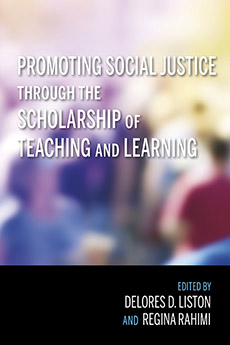Building Student Self-Awareness of Learning to Enhance Diversity in the Sciences

Many students are being left out of pursuing further studies in science because the current system of science education values only students who learn via completion in an isolated, rather than collaborative way (Tobias, 1990).
The stereotype of students who excel in science tend to be the ones who can conform to the institutional structure where the teacher is the sole source of knowledge (Friere, 2000). Through the idea of "Education as the Practice of Freedom" (hooks, 1994), we explore tangible ways to break down that stereotype. Our research begins with the assumption that if teachers taught the ways science operates as a discipline, then students gain more power to construct their own scientific knowledge because they understand the “rules” of knowledge validation (Duschl, 1990). Learning how scientific knowledge is constructed and being self-aware of one’s own learning in science can help level the playing field so that students can do inquiry well (NRC, 1996; AAAS, 1993) and the science classroom will be a more inclusive, positive environment rather than relying on isolated competition for teaching.
Building Self-Awareness
In this book chapter, we present an overview of the purpose, methods and results of the research agendas that we have pursued over 8 years that focuses on helping students to become self-aware of their learning in science and how scientific knowledge is constructed. The work involves 8th grade students, undergraduates, graduate students, and professionals. The studies include constructs such as self-efficacy, motivation, metacognition, self-regulated learning, and visualization. Below is a list of the studies we will be presenting:
- Metacognitive prompts to develop nature of science knowledge - 8th graders
- Calibrating self-efficacy and content knowledge of geologic stratigraphy - undergraduates
- Visualizing subject matter with concept maps - undergraduates
- Self-regulated learning of the nature of science – graduate students
- Self-regulated learning of argumentation in science – professional teachers
We conclude the chapter by organizing the findings of the studies into self-awareness priorities and how those constructs will ultimately impact social justice by providing more opportunities to see alternative perspectives and learn the “rules” of knowledge validation in science. As a result, students develop a sense of agency and an identity where anything is possible because they can learn independently in any situation.
